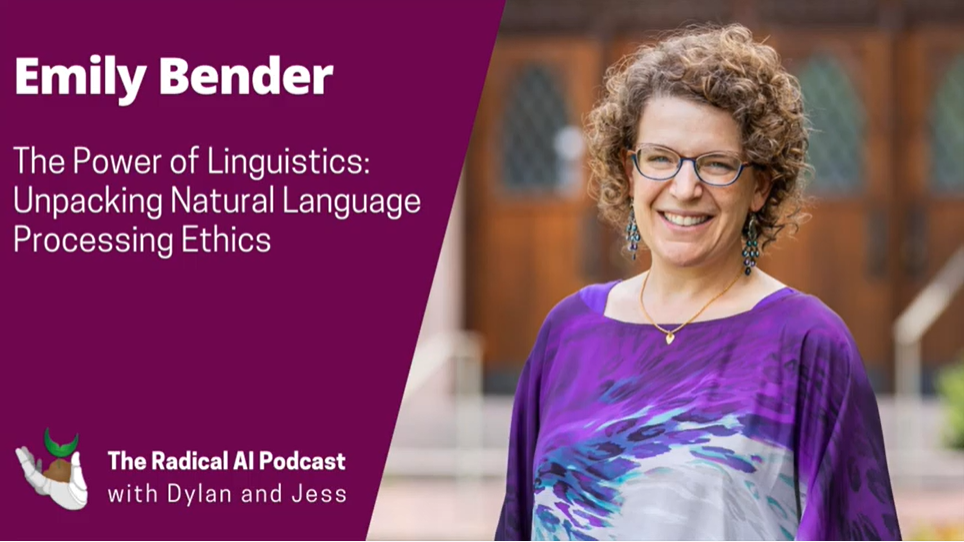
ΑΙhub.org
Radical AI podcast: featuring Emily Bender

Hosted by Dylan Doyle-Burke and Jessie J Smith, Radical AI is a podcast featuring the voices of the future in the field of artificial intelligence ethics. In this episode Jess and Dylan chat to Emily Bender about “The Power of Linguistics: Unpacking Natural Language Processing Ethics”.
The Power of Linguistics: Unpacking Natural Language Processing Ethics with Emily Bender
What are the societal impacts and ethics of Natural Language Processing (or NLP)? How can language be a form of power? How can we effectively teach ethics in the NLP classroom? How can we promote healthy interdisciplinary collaboration in the development of NLP products? To answer these questions and more we welcome Dr Emily Bender to the show. Emily researches linguistics, computational linguistics, and ethical issues in Natural Language Processing. Emily is currently a Professor in the Department of Linguistics and an Adjunct Professor in the Department of Computer Science and Engineering at the University of Washington. She is also the faculty director of the CLMS program and the director of the Computational Linguistics Laboratory. Full show notes for this episode can be found at Radical AI.
Listen to the episode below:
About Radical AI:
Hosted by Dylan Doyle-Burke, a PhD student at the University of Denver, and Jessie J Smith, a PhD student at the University of Colorado Boulder, Radical AI is a podcast featuring the voices of the future in the field of Artificial Intelligence Ethics.
Radical AI lifts up people, ideas, and stories that represent the cutting edge in AI, philosophy, and machine learning. In a world where platforms far too often feature the status quo and the usual suspects, Radical AI is a breath of fresh air whose mission is “To create an engaging, professional, educational and accessible platform centering marginalized or otherwise radical voices in industry and the academy for dialogue, collaboration, and debate to co-create the field of Artificial Intelligence Ethics.”
Through interviews with rising stars and experts in the field we boldly engage with the topics that are transforming our world like bias, discrimination, identity, accessibility, privacy, and issues of morality.
To find more information regarding the project, including podcast episode transcripts and show notes, please visit Radical AI.









